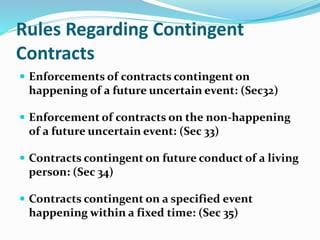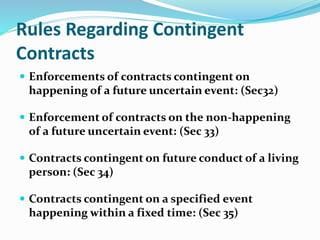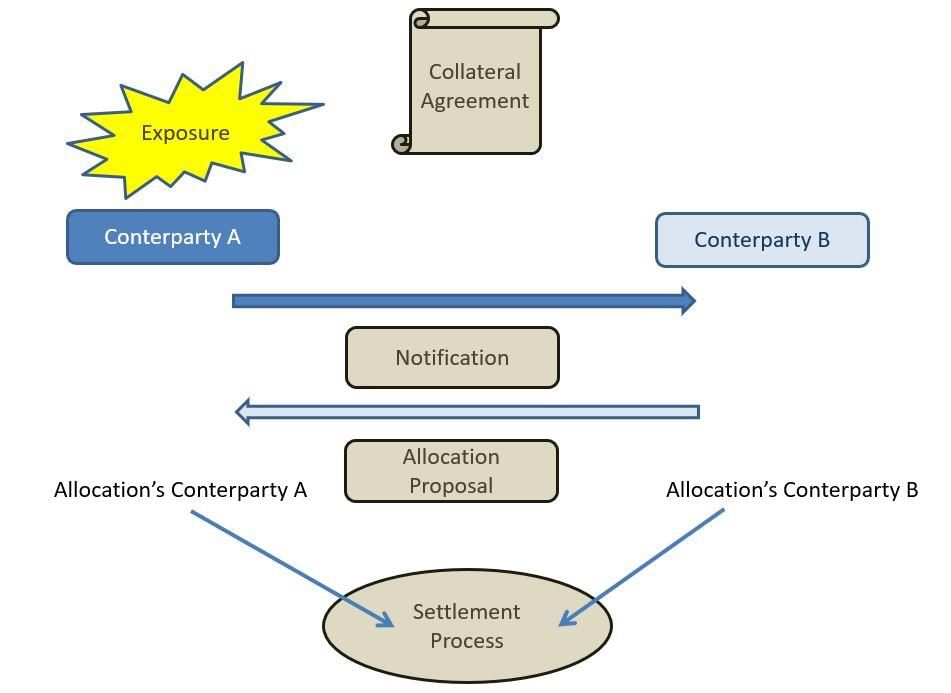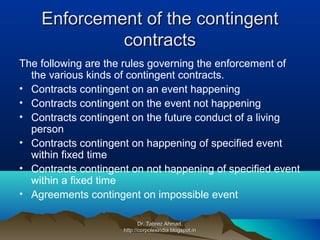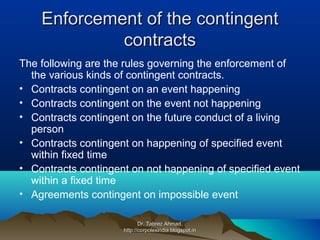|
Card: 1 / 42 |
Contingent contracts are agreements where the promisor's obligation depends on the occurrence of a specific ___ or ___ . |
|
Card: 3 / 42 |
True or False: A contingent contract is enforceable regardless of whether the specified event occurs. |
|
Card: 5 / 42 |
Provide an example of a scenario where a contingent contract would be applicable. |
|
Card: 6 / 42 |
A contract where one party agrees to pay the other if a specific event, like a house fire, occurs.  |
|
Card: 7 / 42 |
According to Section 31, a contingent contract is defined as an agreement to undertake or refrain from undertaking a specific action based on the ___ or ___ of an event external to the contract. |
|
Card: 10 / 42 |
False. While common in insurance, contingent contracts can also be used in indemnity and guarantee situations. 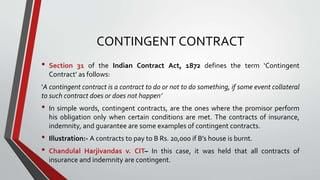 |
|
Card: 11 / 42 |
What is the primary feature that distinguishes contingent contracts from other types of contracts? |
|
Card: 12 / 42 |
The primary feature is that their performance is dependent on the occurrence or non-occurrence of a specific event. |
|
Card: 13 / 42 |
A contingent contract is dependent on the occurrence of a future uncertain event. True or False? |
|
Card: 15 / 42 |
Contracts contingent on uncertain events are enforceable even if the event has not yet occurred. True or False? |
|
Card: 17 / 42 |
If a contract is based on the non-occurrence of a specific event, it is considered ___ to the contract. |
|
Card: 19 / 42 |
What happens to a contingent contract if the contingent event becomes impossible? |
|
Card: 21 / 42 |
In a conditional contract, the obligation of one party is part of the reciprocal promises. True or False? |
|
Card: 23 / 42 |
A contract where A agrees to pay B Rs. 10,000 if B marries C is an example of a ___ contract. |
|
Card: 26 / 42 |
A contract where A agrees to pay B Rs. 1,000 if B chooses to do something that is not solely in A's control. |
|
Card: 28 / 42 |
It refers to events or obligations that are not part of the main reciprocal promises of the contract. |
|
Card: 29 / 42 |
Contracts contingent on the non-happening of a certain future event can be enforced when that event becomes ___ . |
|
Card: 31 / 42 |
True or False: A contract dependent on a person's future action can only be enforced if the person acts as agreed upon. |
|
Card: 32 / 42 |
False; it can be enforced when the action makes it impossible to act as agreed. |
|
Card: 33 / 42 |
Contracts based on uncertain specified events become ___ if the event does not happen by the specified time. |
|
Card: 35 / 42 |
Fill in the blank: If A promises to pay B if a ship returns within a year, the contract can be enforced if the ship returns within the ___ . |
|
Card: 37 / 42 |
True or False: A contract can be enforced based on the non-happening of a specified event before the expiration of the time limit. |
|
Card: 38 / 42 |
True; it can be enforced if it becomes certain that the event will not happen. |
|
Card: 39 / 42 |
Contracts contingent on a certain event can be enforced when the event is ___ . |
|
Card: 41 / 42 |
Fill in the blank: If a contract is based on the non-happening of a specified event, it can be enforced when the time ___ and the event has not occurred. |




